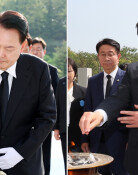Life of free and easygoing weekend
Life of free and easygoing weekend
Posted March. 11, 2017 07:03,
Updated March. 11, 2017 07:08
The government recently announced a plan to introduce "Premium Friday" to help shore up domestic consumption. According to the plan, the government will designate one Friday per month as "Day with Family’" to galvanize "sound leisure culture" and increase work-life balance. With the measure, the government said it expects a rebound of consumer sentiment, which remains in the doldrums.
This makes us to rethink what "sound leisure culture" is. Moreover, it renders us to reflect upon the meaning of leisure from diverse perspectives. The Korean dictionary defines leisure as "leftover time free from work." Specifically, it is defined as time free from obligatory work that adds to everyday stress such as occupational work and essential household chores that are necessary to sustain life.
Some people claim leisure is "state wherein one is not engaged in any activities." However, this is something ordinary people cannot put into practice in everyday life. Philosopher Aristotle said only God can perfectly enjoy "pleasure of inactivity." Oftentimes, people can feel pleasure when engaging in activities. This is evidenced by people singing, dancing, playing and exercising.
In real life, leisure is a matter of how to best use leisure after all. People naturally try to use leisure in an autonomous way when they are free and easy to the maximum extent, if not completely inactive. The state in which you are free and easy means that you are free from obsession to yourself as well. When you are free and easy or relaxed, then you will escape from yourself and look around. That is, you will experience the moment when you are free for interests. If you look around, you will see other people. You will come see a world that you do not see in ordinary times. You will come to see the world from a broader and deeper perspective.
The special meaning of leisure that people often miss out lies right here, and philosophers have agonized over this question since ancient time. It means you can shift from a "life of all by myself" to a "life with others" only when you have leisure time during your everyday life. In other words, people come to think about "how to live well with others" when they are freed and eased from the burden of daily routines.
It was also a core theme in Thomas Moore’s "Utopia" that addressed an ideal society in the 16th Century. In Utopia, people work six hours a day. People work three hours in the morning, and take rest for two hours after lunch, before working three hours again. They have adequate leisure time thereafter as well. What would people in Utopia do? They enjoy diverse games. In addition, they spend leisure time to seek mental freedom and enhance culture. They come to reflect and examine their own "life in which they can live well with others" by freely enriching culture. Is this something that can only happen in an ideal country? Of course. However, if you don’t walk towards ideal, the realty will not improve.
Good use of leisure time transforms us from individuals to citizens. What Benjamin Disraeli, who was a politician of practicality, indicated by mentioning a "civilizer" was the importance of the role of leisure as individuals continue to grow to become citizens. Further back in history, St. Augustine said "leisure is sacred" in order to explain the deep meaning of "life with others."
People engaging in consumption activities with family on a "Premium Friday" will come to benefit our community. What’s more important would be a fundamental and sustainable measure that will assure "life with free and easy-going weekend."







